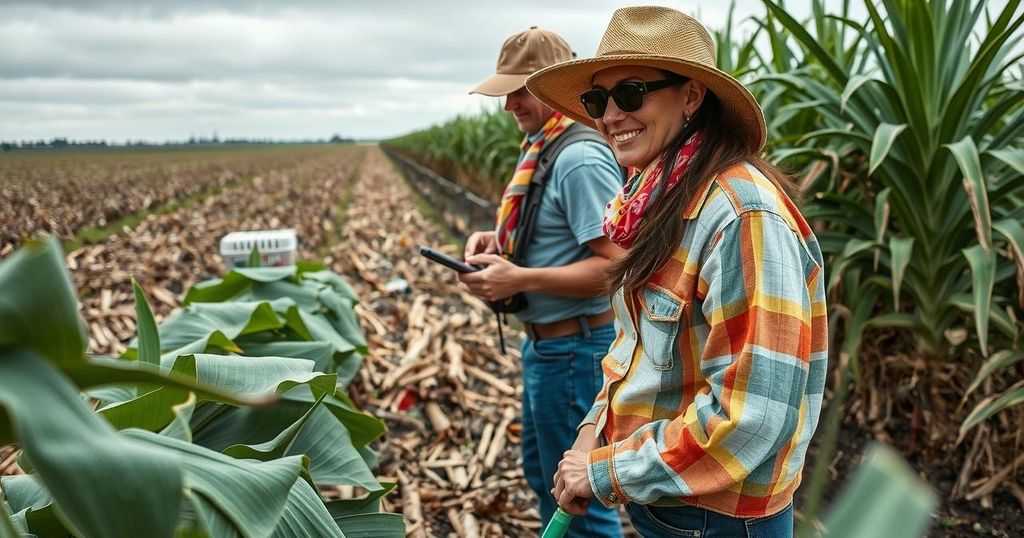Farmers in Georgia face significant challenges months after Hurricane Helene devastated crops, with losses exceeding $10 billion across the South. The hurricane hit during the crucial fall harvest, prompting immediate emotional and financial distress among farmers. Recovery efforts are complicated by the need for extensive rebuilding, while consumer prices are likely to remain stable. Government assistance, through loans and disaster relief, plays a critical role in the recovery process, but direct aid limitations pose challenges.
Farmers in Georgia continue to struggle over two months after Hurricane Helene wreaked havoc on their fields. Chris Hopkins, who operates a farm in Toombs County, describes the emotional toll as he contends with broken equipment and damaged crops. The hurricane, which made landfall on September 26 as a Category 4 storm, caused extensive destruction across the South, notably impacting agricultural areas. Losses for farmers across several states are estimated to exceed $10 billion, affecting crops, timber, and livestock.
As the storm struck during the critical fall harvest season, farmers like Hopkins were forced to suspend clean-up efforts to salvage remaining crops. The University of Georgia has estimated losses in Georgia alone to be at least $5.5 billion, while North Carolina recorded crop losses amounting to $3.1 billion. The storm’s impact was felt far beyond its center with wind damage affecting farms hundreds of miles away.
Farmers such as Jeffrey Pridgen, a poultry farmer, are facing significant economic hardship as infrastructure was destroyed, resulting in the loss of harvested crops and animals. He noted, “I was looking at retirement, but I lost my retirement and my income in one day.” In Georgia, the poultry industry alone is anticipated to have sustained a $683 million loss. The government has attempted to assist via emergency loans, yet the constitution prevents direct aid to individuals.
Experts suspect that consumer prices will remain stable, as produce from other regions can compensate for local shortages, although pecan prices may be affected due to Georgia’s dominance in production. The effect of Hurricane Helene on the agricultural sector is expected to linger for years, as recovery and rebuilding efforts take precedence for affected farmers.
Hurricane Helene, a Category 4 storm that made landfall in Florida on September 26, 2018, profoundly impacted agricultural communities across the Southeastern United States. The hurricane’s path of destruction extended through various states, including Georgia and North Carolina, causing overwhelming losses for farmers. Crop damage, uprooted timber, and destroyed equipment represent just a portion of the extensive economic toll, leading to collaborative recovery efforts involving state funds and potential federal disaster relief. The long-term implications on farming operations and industry stability have necessitated urgent action from local governments and the agricultural community to ensure the survival of these crucial sectors.
In summary, Hurricane Helene has left farmers in Georgia and the broader Southern region grappling with severe financial losses and emotional distress. The devastation inflicted upon crops, livestock, and farm infrastructure is unprecedented, with projected losses exceeding $10 billion. Recovery efforts are underway, but the prospect of enduring economic hardship looms large over affected agricultural communities. It remains essential for state and federal entities to provide timely support to ensure the resilience and sustained productivity of the agricultural sector in the wake of such disasters.
Original Source: brookingsregister.com






